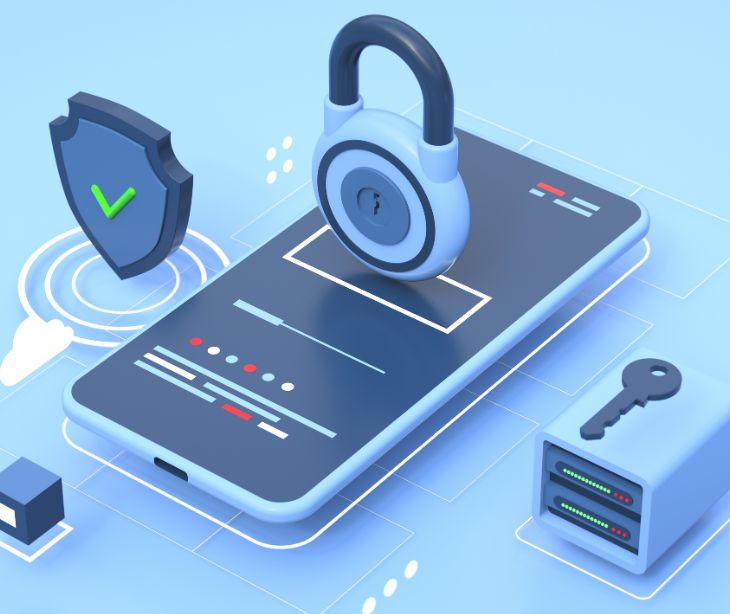
Data security refers to the practices, technologies, and measures to protect digital data from unauthorized access, corruption, theft, or damage. It involves strategies to ensure data confidentiality, integrity, and availability.
Understanding data security
Data security encompasses strategies and measures to shield digital data from unauthorized access, corruption, or damage. It revolves around key pillars such as:
- Confidentiality: Ensuring that sensitive information, like patient health records, remains accessible only to authorized individuals or entities.
- Integrity: Guaranteeing the accuracy and trustworthiness of data by preventing unauthorized alterations or modifications.
- Availability: Ensuring data remains accessible to authorized users while protecting against denial-of-service attacks or system failures.
Where data security intersects with HIPAA compliance
Protected health information (PHI) protection: HIPAA mandates the protection of PHI, including patient records, medical history, treatment information, and more. Data security is crucial to prevent unauthorized access, breaches, or theft of this sensitive information.
Administrative, physical, and technical safeguards: HIPAA requires healthcare entities to implement safeguards to protect PHI. Data security measures such as encryption, access controls, regular risk assessments, and employee training are essential components of these safeguards.
Data breach notification and response: HIPAA requires covered entities to have protocols to detect, mitigate, and respond to data breaches involving PHI. Implementing robust data security measures allows organizations to see breaches early, minimize their impact, and follow mandatory breach notification procedures.
Business associate agreements (BAAs): HIPAA mandates that covered entities enter into contracts with business associates who handle PHI. These agreements require business associates to comply with HIPAA regulations and ensure the security of the PHI.
Audit trails and monitoring: Healthcare organizations are required to maintain audit trails and regularly monitor access to PHI. Data security measures help create comprehensive audit logs and monitoring systems that track and record access to sensitive information, aiding in compliance with HIPAA requirements.
How can organizations implement data security?
Implementing data security requires a comprehensive approach that involves various strategies, technologies, and practices. Here are steps organizations can take to bolster their data security:
Conduct comprehensive risk assessments
- Identify potential vulnerabilities and threats to patient data.
- Evaluate existing security measures and determine areas for improvement.
- Regularly conduct risk assessments to stay updated on evolving threats.
Establish strict access controls
- Implement role-based access controls (RBAC) to limit access to sensitive patient data based on job roles.
- Enforce multi-factor authentication (MFA) for accessing critical systems and data.
Encryption and data protection
- Utilize encryption techniques to safeguard patient data.
- Apply encryption to emails, databases, portable devices, and other mediums where patient data is stored or transmitted.
Employee training and awareness
- Provide comprehensive training on data security best practices for all employees handling patient information.
- Raise awareness about social engineering tactics, phishing attempts, and other security threats.
Regular software updates and patch management
- Keep all software, including operating systems and applications, updated.
- Implement a patch management strategy to address vulnerabilities promptly.
Implement incident response plans
- Develop and update incident response plans to promptly address data breaches or security incidents.
- Establish clear procedures for reporting and mitigating breaches while adhering to HIPAA breach notification requirements.
Secure physical infrastructure
- Ensure physical security measures for servers, data centers, and other hardware that store patient information.
- Limit physical access to facilities to authorized personnel only.
Auditing and monitoring
- Implement robust auditing tools to track and monitor access to patient data.
- Establish logs and alerts for suspicious activities or unauthorized access attempts.
Secure disposal of data
- Properly dispose of outdated or unnecessary patient data in compliance with HIPAA guidelines.
- Use secure methods such as shredding or digital wiping to prevent data breaches through discarded materials.
Compliance with HIPAA regulations
- Ensure full compliance with HIPAA standards, including regular risk assessments, documentation, and adherence to privacy and security rules.
Collaboration with security experts
- Engage security professionals or consultants to perform security audits, guide best practices, and assist in implementing robust security measures.
See also:
- How to securely dispose of PHI according to HIPAA standards
- HIPAA violations & enforcement
- HIPAA Compliant Email: The Definitive Guide
Subscribe to Paubox Weekly
Every Friday we bring you the most important news from Paubox. Our aim is to make you smarter, faster.




